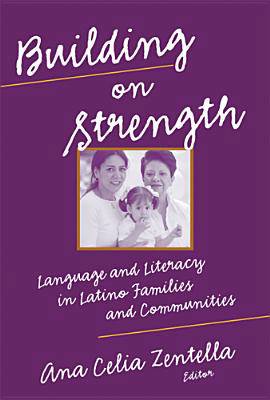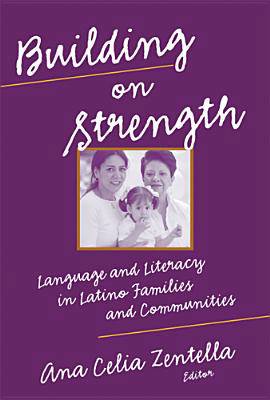
- Afhalen na 1 uur in een winkel met voorraad
- Gratis thuislevering in België vanaf € 30
- Ruim aanbod met 7 miljoen producten
- Afhalen na 1 uur in een winkel met voorraad
- Gratis thuislevering in België vanaf € 30
- Ruim aanbod met 7 miljoen producten
Zoeken
Building on Strength
Language and Literacy in Latino Families and Communities
€ 52,95
+ 105 punten
Omschrijving
This book offers an exciting new perspective on language socialization in Latino families. Tackling mainstream views of childhood and the role and nature of language socialization, leading researchers and teacher trainers provide a historical, political, and cultural context for the language attitudes and socialization practices that help determine what and how Latino children speak, read, and write. Representing a radical departure from the ways in which most educators have been taught to think about first language acquisition and second language learning, this timely volume:
- Introduces the theories and methods of language socialization with memorable case studies of children and their families.
- Highlights the diversity of Latino communities, covering children and caretakers of Mexican, Caribbean, and Central American origin living in Chicago, San Antonio, the San Francisco Bay Area, Los Angeles, San Diego, Miami, Tucson, and New York City.
- Offers important insights into the ways in which children learn to speak and read by negotiating overlapping and/or conflicting cultural models.
- Suggests universal practices to facilitate language socialization in multilingual communities, including applications for teachers.
Specificaties
Betrokkenen
- Uitgeverij:
Inhoud
- Aantal bladzijden:
- 213
- Taal:
- Engels
- Reeks:
Eigenschappen
- Productcode (EAN):
- 9780807746042
- Verschijningsdatum:
- 10/09/2005
- Uitvoering:
- Hardcover
- Formaat:
- Genaaid
- Afmetingen:
- 160 mm x 231 mm
- Gewicht:
- 453 g

Alleen bij Standaard Boekhandel
+ 105 punten op je klantenkaart van Standaard Boekhandel
Beoordelingen
We publiceren alleen reviews die voldoen aan de voorwaarden voor reviews. Bekijk onze voorwaarden voor reviews.







